Continue to Grow as an Educator
Why must teachers grow?
The areas of growth that we recommend have the purpose to assist in identifying their needs and determining effective ways to overcome weaknesses and enhance strengths. That way, once they have acquired the necessary tools, they can start designing their course of action to accomplish professional development.
It is generally known that the teaching profession is one of the most directly impacted by social, economic, and technological changes. Consequently, an educator must regard their career as a continuing learning process in order to keep up with this ever-changing world. This means that an instructor consistently has room for improvement since there is always some skill to sharpen or some didactic issue to solve.
However, the path to self-improvement is not a fixed one, it is different for every one of us. So, this personal journey has to be preceded by deep reflection and careful planning before setting our own professional growth goals.
Also, we cannot stress enough that the road to self-development is not for the faint-hearted, since it demands constant attention and full commitment. Nevertheless, it can be a most satisfying reward to be able to see the positive outcomes of the goals we have set for ourselves in our classroom.
What can teachers improve on?
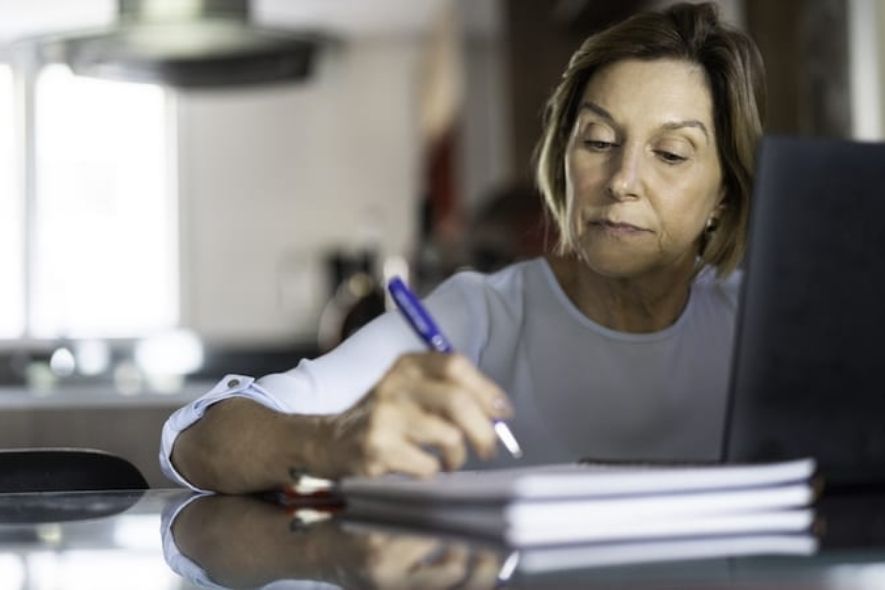
Self-evaluation
Change and evolution require self-awareness. Educators must cultivate the ability to see themselves clearly and objectively through reflection and self-analysis. This way, they see what is happening around them, learn from the situation, and can be able to make the necessary adjustments.
We can divide this process of self-evaluation into three fundamental phases:
- First, a teacher must recognize there is a need for change, both within and around them. Detecting that something goes wrong it is the first step towards improvement;
- Secondly, they have to determine what areas of their teaching need the most attention. Before setting their goals, they have to figure out which are their strengths and weaknesses;
- Thirdly, they must decide on key areas of growth and commit to them.
When it comes to reflecting on the classroom experience, the students' small clues and positive feedback is a rich source of information. That is, paying attention to what students comment in class is an effective way to find out strengths. Usually, we can find that there are recurring themes of conversation which can help identify what is working well or not.
Finding the positive in the students' daily evaluations is a sure way to:
- Pinpoint which strategies are the best to engage their attention and interest;
- Consider the implementation of small progressive changes.
In conclusion, self-evaluation is a critical step in any process of growth and change. Generally, the path towards improvement becomes clearer when a teacher is willing to admit mistakes and put their students' needs first.
Pedagogical learning
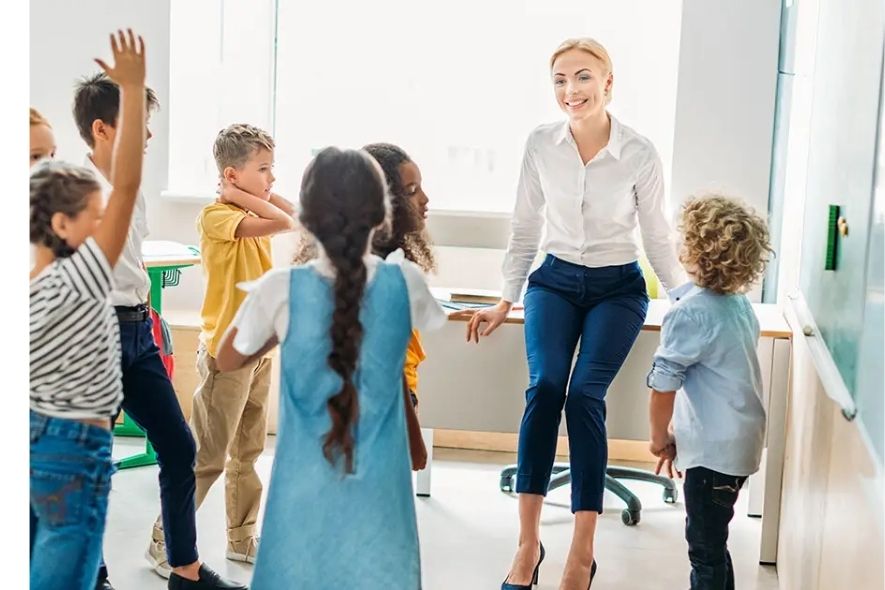
Teachers' efficacy is, arguably, the product of three aspects:
- Deep knowledge of the subject-matter or content area;
- Professional experience;
- Development of teaching skills.
Consequently, due to the fast changes in technology and society, an educator must brush up on their pedagogy to stay relevant. Those changes greatly affect the way students learn and the way teachers teach, so there is always room for pedagogical improvement. As a result, learning "how to teach" and "how students learn" become priorities in a teacher's journey towards significant growth.
In order to improve the way they teach, an instructor can focus on these tasks:
- Brush up on the basics; that is, come back to what they once learned but it is now partly forgotten, and renew those skills;
- Learn about new theories which can provide useful information about how people learn best;
- Learn about new teaching strategies and techniques which can be actually implemented in the classroom;
- Improve the way they differentiate instruction in order to meet the individual learning needs of each student. This way, all students have the same opportunities to reach the common learning goals.
We can safely affirm that methodology is at the core of the success of the learning and teaching process; so, studying the best approaches and adapting them effectively to their classroom's idiosyncrasies is a course of action worth being taken by any committed teacher.
Find more about how teachers can improve their lessons by reading our blog article.
Adaptability
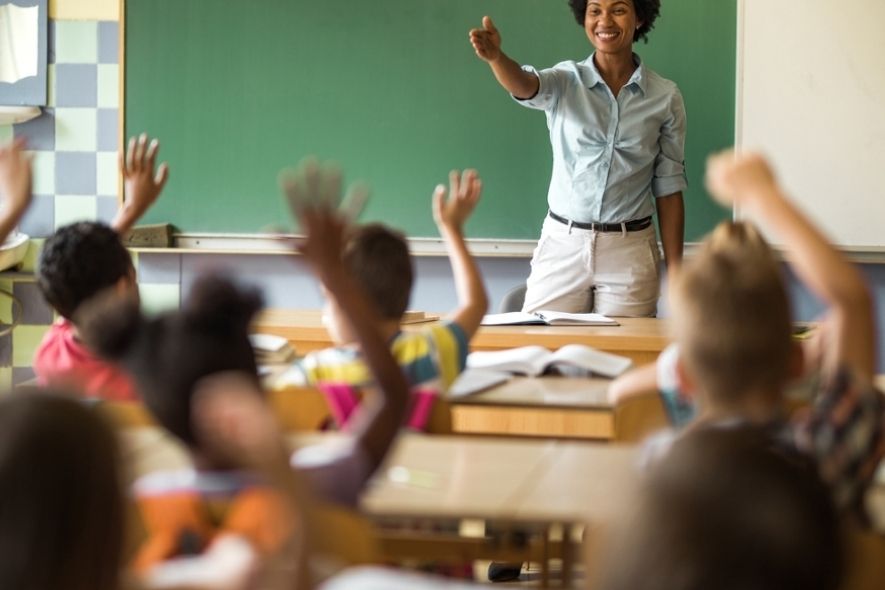
The teaching work is especially demanding and consistently changing; so, being able to respond effectively to an uncertain environment is widely considered an essential ability for educators. The following situations are examples of what teachers must navigate on a daily basis:
- Respond appropriately to students with diverse learning needs;
- Face and handle unexpected situations in the classroom;
- Interact and communicate with colleagues, students, parents and administrators;
- Implement new strategies and techniques in their teaching practices;
- Make changes in lesson plans.
Certainly, being able to adjust to new conditions reduces stress and anxiety and, as a result, contributes to the educators' well-being. Moreover, instructors who challenge themselves when circumstances change prove to be:
- More focused on improvement;
- More prone to think ahead when it comes to anticipating potential student struggles.
In conclusion, we can say that when a teacher is versatile and willing to develop their craft, they bring into the classroom a flexible learning atmosphere that fosters students' motivation and engagement.
Communication
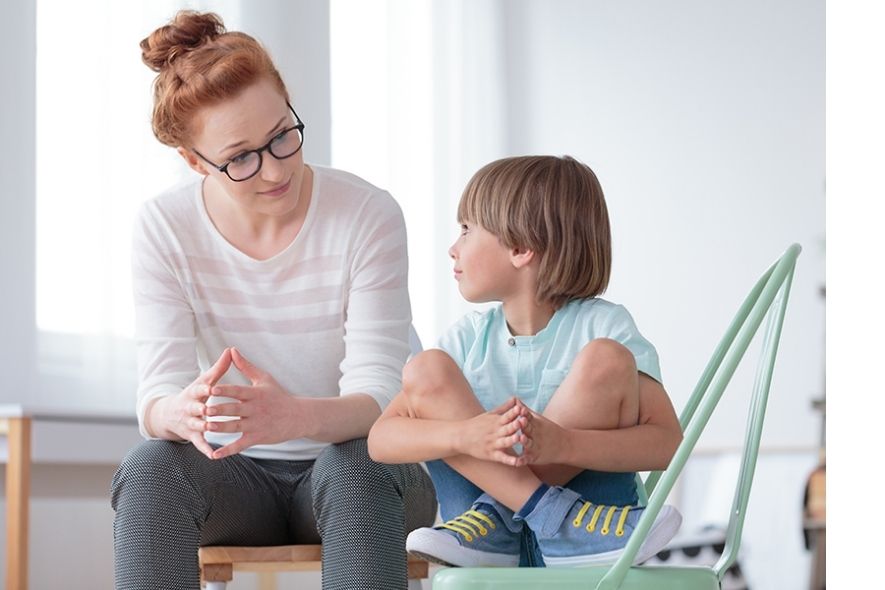
By the very nature of their profession, teachers are constantly interacting with a great number of people: students, parents, colleagues, administrators, etc. And, although the rapports that teachers establish with the surrounding adults are important too, we are focusing on what happens in the classroom with students.
A fundamental and challenging part of teaching is being understood quickly and accurately by students. So, the success of the students' learning process is guaranteed when the message gets across to them and effective communication is established.
Furthermore, many studies show that students' lack of motivation and eventual school dropout is a direct result of educators' poor communication skills. Therefore, a dedicated teacher must avoid at all costs frequent misunderstandings in class, which usually lead to students' frustration and lack of interest and enthusiasm.
What communication skills are required to grow as a teacher?
An educator willing to improve their performance in class should master these communication skills:
- Active listening;
- Speaking clearly and concisely;
- Non-verbal language (keep eye contact, smile, energetic body language to transmit enthusiasm);
- Consistent constructive feedback;
- Deliver instruction in a way that lessons keep students involved and engaged;
- Management of the classroom in an observant and empathic way.
What are the benefits of an effective communication?
- Students can more easily integrate new contents and information with previously acquired knowledge, thus achieving significant learning.
- Teachers build a rapport with students that foster the open exchange of ideas and opinions; thus creating a learning atmosphere based on trust and respect;
- Feeling actually listened to and not judged encourage students to participate and interact; a safe learning environment promotes their will to cooperate. As a result, their investment and engagement to the learning process increases exponentially.
- A supportive teacher-student relationship have a highly positive impact on the students' achievement of academic goals.
When an educator makes the effort to mentor and offer guidance to students, the latter's confidence and self-steem is enhanced. And, consequently, they feel more motivated to work hard towards the obtainment of their objectives. Students' positive academic progress highly depends on teachers' effectiveness to perform their tasks. And, at the same time, this effectiveness is directly affected by the way educators communicate with students.
So, as we can see, all the elements of the teaching-learning process are intimately interrelated. They influence and impact each other in many meaningful ways. And, observing carefully this complex net, we can find that communication skills are a crucial part of it.
Organization

As we have discussed earlier in this article, classrooms are unpredictable environments. And consequently, one of the many tasks of teachers is organizing and preparing for what might come up unexpectedly.
Generally, organized educators promote more effective learning environments, which greatly benefit the academic advancement of students. When the classroom runs smoothly and efficiently, that orderly atmosphere contributes to an efficient transfer of knowledge.
Moreover, planning ahead provides a comforting sense of control to teachers, who feel more confident in their methods and strategies. That is, advanced preparation allows educators to consider the possible consequences of whatever may happen in the classroom. And, as a result of this careful planning, teachers can avoid overwhelming and stressful situations which affect negatively their performance in class.
Innovation
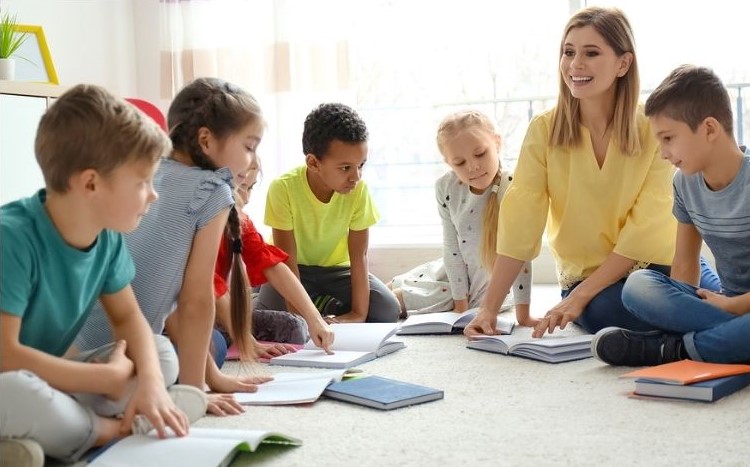
Nowadays, innovation, imagination, and creativity are having an increasingly prominent role in classrooms. Educational environments are constantly evolving and adapting to social and technological changes, so teachers need to find new powerful tools to keep students engaged and on task.
What characterizes an innovative teacher?
- Think in unique ways to make learning significant and fun at the same time;
- Willing to try new strategies and techniques to achieve students' academic success;
- Alert to the individual learning needs of each of the students;
- Identify potential student struggles and challenges (loss of interest or focus, lack of understanding, low engagement, demotivation);
- Find new ways of motivating and encouraging students to successfully reach their objectives;
- A lifelong learner who never stops developing their teaching skills;
- Focused on consistently improving their performance in class;
- Teach students to question everything and cultivate critical thinking.
- Encourage students to take intellectual risks.
- Promote collaborative work.
In order to achieve an actual meaningful classroom experience, educators must challenge themselves and confront new possibilities, diverse ideas, and perspectives.
Keeping an open mind and a critical eye can help obtain a fuller picture of the complexity of the teaching-learning process, thus avoiding both stagnation and dated didactic approaches.
Leadership
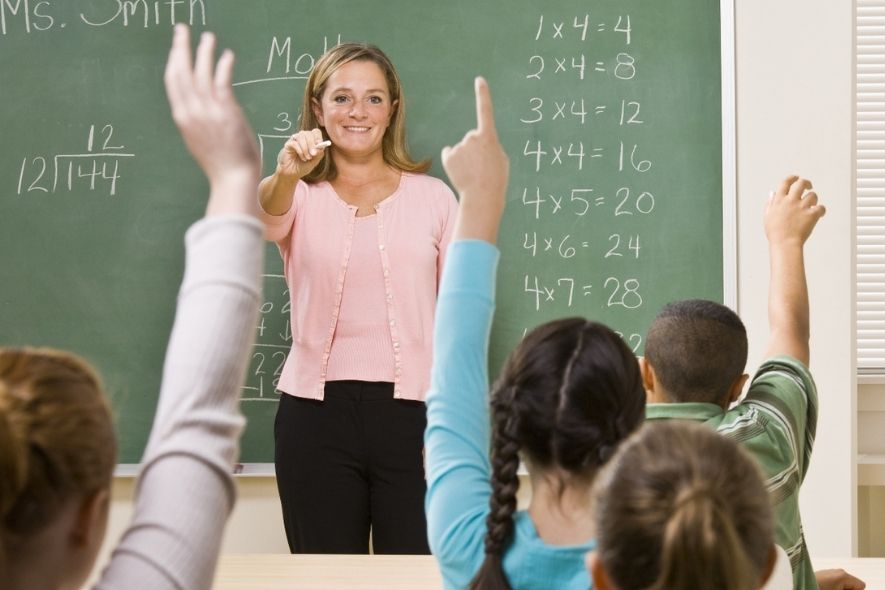
The role of a leader in a classroom implies that students trust a teacher enough to:
- Follow their lead;
- Allow themselves to be influenced, and even changed.
This is a direct consequence of having excellent communication skills. That is, cultivating an atmosphere of openness and reliability fosters an educational environment where student empowerment can develop unhindered.
An educator that promotes confidence, honesty, commitment, integrity, and growth becomes a positive role model. Under their influence:
- Students tend to be inspired to achieve more than they thought they could;
- Their horizons and aspirations broaden in ways they never could imagine, only because a teacher made the effort to support and advise them appropriately.
Read our blog article on how to create a more positive school environment if you wish to explore more about this topic.
Similarly, a teacher who focuses on developing their students' s potential proves to be specially qualified to mentor and guide them in the right direction. An educator who cares to find out what students need can transform their learning experience by:
- Answering questions in a practical and useful way;
- Giving constructive feedback;
- Listening actively;
- Helping determining where there is room for improvement;
- Supporting their pupils through hard times.
Being a leader in the classroom also implies becoming an agent of change. That is, taking up new initiatives and making them work efficiently for the benefit of the students´ academic progress. An educator's role as an agent of change entails these tasks:
- Observe and determine what changes are needed;
- Research and decide how to carry out these changes;
- Facilitate their implementation;
- Evaluate the results;
- Make adjustments if necessary.
In conclusion, leadership in a classroom means guiding students in their individual learning processes in a meaningful and significant way. A teacher leader listens, inspire, counsel, and encourage students to become their best selves and live to their full potential.
Dig deeper about teachers as leaders in our blog article on the Erasmus + Project of the same name.
Continuous learning

Being a dedicated teacher means going through a lifelong learning process. So, an educator who has a clear sense of improvement and progress should consider continuous learning a priority.
In order to maintain and improve efficiency, educators should keep themselves up-to-date regarding instructional methods, educational technology, the curriculum, etc.
Furthermore, another powerful reason for never stopping learning is to avoid burning out and demotivation. Undoubtedly, going the extra mile to keep teaching practices fresh and engaging helps foster a successful learning environment.
What can teachers do to keep learning?
- Participate in workshops, seminars and courses;
- Group with other educators who are open to share their ideas, methods and techniques;
- Observe colleagues' classes:
- learn what works for students from a delivery standpoint
- focus on teacher-student interaction to learn what pulls the class into the lesson.
The classroom experience is extremely rich and complex. So, teachers should:
- Gather useful information from all resources available in order to face their daily tasks properly armed with adequate tools;
- Take away from those sources all that is meaningful and can impact their work for the better.
Conclusion
As a final reflection, we consider it's necessary stressing the importance of professional growth in teaching. Educators are prominent figures that can have a huge impact on students' both academic and personal life. So, they should assume the responsibility to consistently improve their performance in the classroom.
Considering they play a pivotal role in the intellectual growth of students, developing their teaching skills should be at the top of an educator's priority list. Poor instructional skills can have far-reaching repercussions in their lives since the students' perception of the classroom experience relies greatly on the teacher's performance.
Get started today in finding your personal areas of growth, explore more than 200 courses from our catalogue:
- Erasmus+ teacher training courses.
- Arts and wellbeing courses
- Classroom management courses
- Creativity and soft skills courses
- ICT courses
- Languages and CLIL courses
- School innovation courses
- Online courses for teachers.
- CELTA course in Florence or our CELTA course online.
Source: https://www.teacheracademy.eu/blog/teachers-growth/
0 Response to "Continue to Grow as an Educator"
Post a Comment